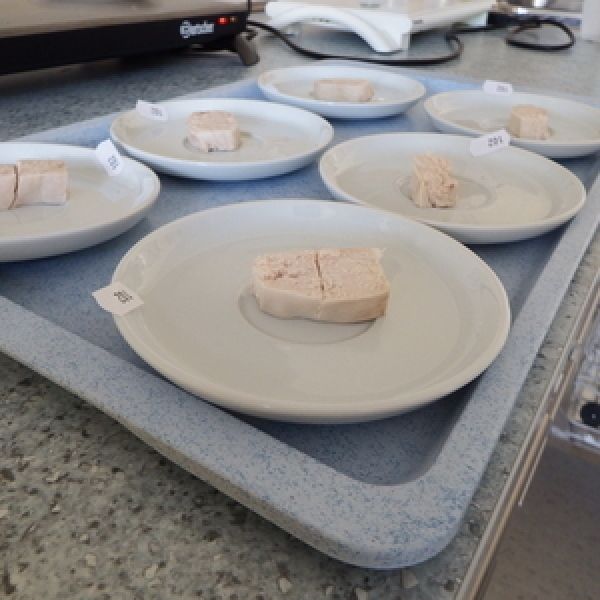Worldwide there is a growing demand for animal products for human nutrition, despite vegan and vegetarian diets becoming more popular in Western countries. Changing diets necessitate a substantial amount of protein as an input for animal production. Future protein feedstuffs will need to become independent of arable land in order to avoid further land use changes, such as deforestation. The cultivation of insects as well as microalgae are up-and-coming sectors in Germany, as well as globally, to meet protein demands for humans and animals alike. Therefore, a research team at the University of Göttingen investigated whether these alternative protein sources alter typical meat quality. Their results have been published in the Journal of the Science of Food and Agriculture (JSFA).
In a study conducted as a part of the project “Sustainability Transitions in the Food Production”, broiler chickens were fattened using feed with the main protein sources being soybean meal, spirulina, or insects. Animal growth, meat quality (especially concerning shelf life), and eating quality were investigated. Their results of laboratory testing and sensory (taste-testing) analyses across 132 birds show that black soldier fly larvae meal and spirulina can be included in poultry feed without negatively impacting quality. Chickens fed with black soldier fly larvae meal produce meat equivalent to the status quo. Chickens fed with spirulina produce meat with a more intensive colour and flavour. “Overall, both prove to be potential soybean meal alternatives in the search for new protein sources for animal feed,” as explained by the study lead researcher Dr Brianne Altmann.
Continue reading at University of Göttingen
Image via University of Göttingen


